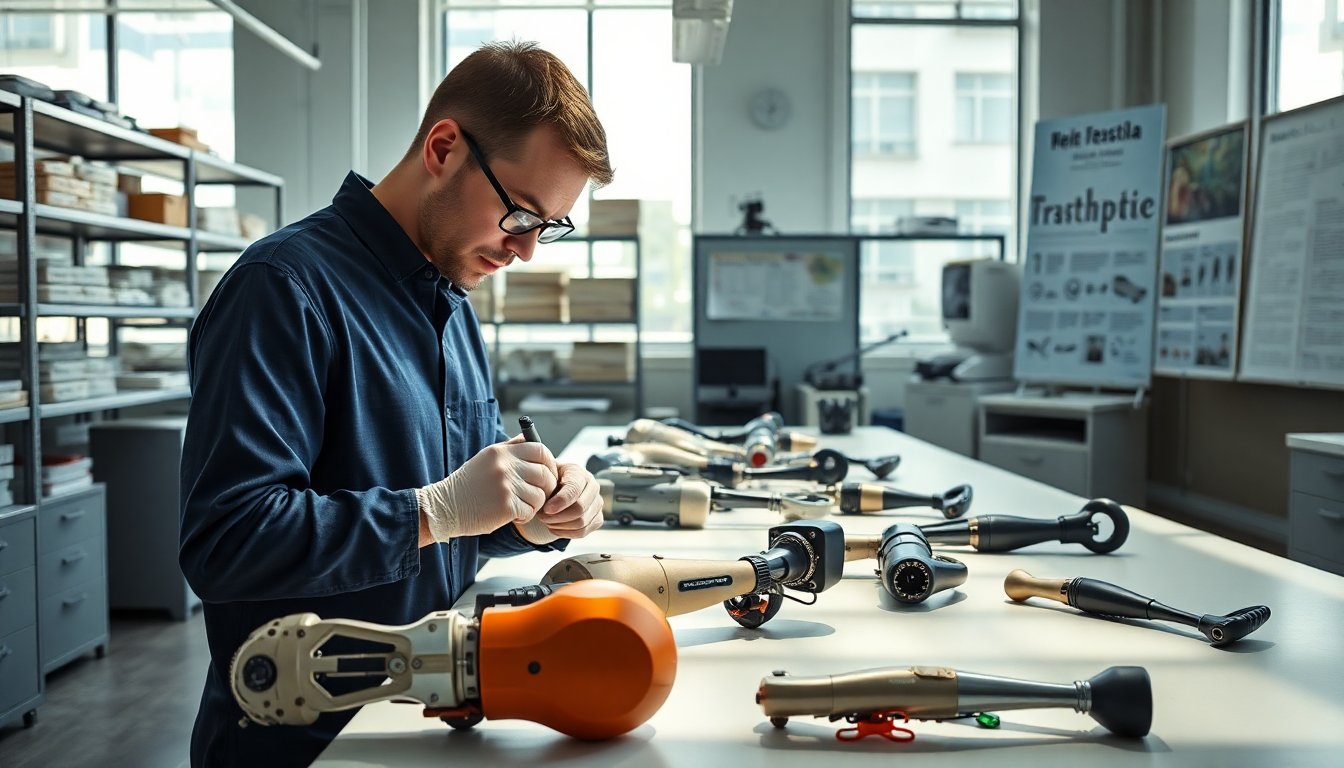Table of Contents
Amid ongoing conflict, Russia has reported a significant rise in the production of prosthetic limbs, a development driven by the injuries sustained by its soldiers during the invasion of Ukraine. This situation brings to light complex questions regarding the intersection of war, innovation, and societal progress.
At the Eastern Economic Forum in Vladivostok, Deputy Defence Minister Anna Tsivilyova stated that Russia has emerged as a leader in prosthetic technology, attributing this status to the high number of injured soldiers requiring amputations. While this assertion highlights advancements in medical manufacturing, it is underscored by the tragic circumstances necessitating such developments. Tsivilyova’s comments reflect a mix of national pride in innovation and an effort to present a positive narrative amid a dire situation.
The grim reality driving innovation
Statistics surrounding prosthetic limb production in Russia are striking. Recent government data indicates that the country produced an additional 60,000 prosthetic limbs in 2024 compared to 2021, representing a remarkable 65% increase. While progress in medical technology is commendable, it is essential to recognize that these advancements arise from the harsh realities of warfare.
Critics, including political analyst Fyodor Krasheninnikov, have highlighted the irony of celebrating medical progress born from conflict. He conveyed that while advancements in medicine are beneficial, they should ideally emerge from peaceful conditions rather than as a byproduct of violence and suffering. This viewpoint underscores the need for a more humane approach to innovation and medical advancement.
The Russian government has been notably secretive about military casualties, complicating the overall narrative. The lack of transparency regarding the number of soldiers killed or injured adds complexity to discussions surrounding the nation’s state of affairs. A recent study by the Center for Strategic and International Studies estimates that nearly 1 million Russian troops have been either killed or wounded since the conflict began, highlighting the human cost of this innovation.
Understanding the broader implications
The increase in prosthetic limb production not only addresses the immediate needs arising from the conflict but also signifies a shift in the medical landscape within Russia. As the country grapples with the consequences of war, the demand for advanced healthcare solutions becomes increasingly urgent. This scenario illustrates how conflict can inadvertently drive technological advancements and innovation across various sectors, including healthcare.
However, the ethical implications of such advancements cannot be ignored. As nations strive to enhance their medical capabilities, it is crucial to consider how these developments are shaped by the circumstances from which they arise. The challenge lies in ensuring that innovations in healthcare prioritize human dignity and welfare rather than emerging as responses to human tragedy.
The ongoing conflict has transformed the dynamics of medical production in Russia, leading to advancements that may have otherwise taken years to develop. Yet, it is vital to remain aware of the underlying causes of these advancements and to aspire towards a future where medical progress is achieved through collaboration and peace rather than conflict.
Future outlook for medical innovation in Russia
Looking ahead, the landscape of medical innovation in Russia is likely to continue evolving as the war persists. The drive for improved healthcare solutions will remain a priority, not only for the Russian military but also for the civilian population affected by the conflict. Balancing the urgency of these needs with ethical considerations and the desire for a more peaceful approach to innovation will be crucial.
As the situation unfolds, the global community will be observing closely. Developments in Russia’s healthcare sector may serve as a case study for understanding the intricate relationship between conflict and innovation, providing lessons that extend beyond the nation’s borders. Ultimately, the hope is that advancements made in the medical field will lead to a future where such progress occurs without the backdrop of war.


